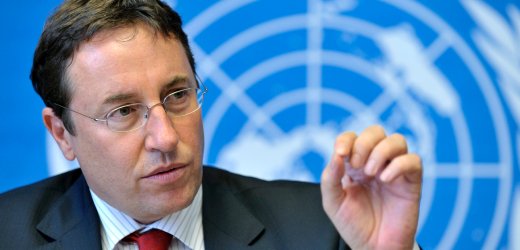On the occasion of the fourth year commemoration of the release of the United Nations Environmental Programme (UNEP) Assessment of Ogoniland (4 August 2015), the Environmental Rights Action/Friends of the Earth Nigeria (ERA/FoEN) and other groups have called on the administration of General Muhammadu Buhari to tackle the myriads of environmental challenges besetting the Niger Delta.

The ERA/FoEN, Amnesty International, Centre for Environment, Human Rights, and Development (CEHRD), Friends of the Earth Europe and the National Coalition on Gas Flaring and Oil Spills in the Niger Delta (NACGOND) urged Buhari to tackle oil pollution and corporate impunity that has plagued the Niger Delta for decades.
In the letter, the groups said: “We are pleased that in its first one hundred days your administration has raised this important issue and convened a stakeholder meeting on 28 July between the government, UNEP, the oil industry and representatives of affected communities. We hope that this meeting signals the start of a meaningful process to implement UNEP’s recommendations.”
UNEP’s scientific study exposed the large-scale, continued contamination of the water and soil in Ogoniland, and the serious threat this poses to human health. In one case, UNEP found that a community drinking well was polluted with benzene, a cancer causing substance, at levels 900 times above the World Health Organisation guideline.
The report presented to the Goodluck Jonathan administration on 4 August 2011, also confirmed that the oil company Shell has systematically failed to adequately clean up pollution for which it is responsible. UNEP found that Shell’s clean-up methods in Nigeria, and the maintenance of its infrastructure, do not meet international best practice or even comply with the company’s own standards.
UNEP recommended the establishment of an Ogoniland Environmental Restoration Authority tasked with overseeing a clean-up operation, funded by an initial $1 billion contributed by the oil industry and the Nigerian government. It also recommended strengthening regulation of the industry, monitoring public health, and emergency measures to address the grave risks faced by the people of Ogoniland from contaminated water. In addition, UNEP made clear that Shell must overhaul its remediation procedures in Nigeria so that clean-up of oil spills is effective.
However, four years on, these recommendations remain almost entirely unimplemented while the people of Ogoniland and the wider Niger Delta are forced to live with the devastating effects of oil pollution. For 50 years, pollution from the oil industry has damaged the health, the livelihoods, and the environment of the people of the Niger Delta.
The groups urged the Buhari administration to make the implementation of the UNEP report a priority, even as they specifically demanded the:
- Establishment of an Ogoniland Environmental Restoration Authority as an urgent priority;
- Establishment of the Environmental Restoration Fund with at least $1billion of initial financing. Shell has said that it will commit funds but not until a Fund has been set up;
- Ensure that communities are fully involved in the implementation process and that it is totally transparent.
